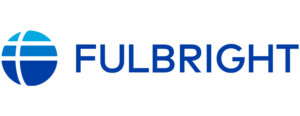Open-access textbook designed with the principle of multimodal access.
Welcome to Introduction to Critical Theory, an open-access web-based textbook written and designed by Alexa Alice Joubin based on her original research. This site features a bespoke, multilingual AI Teaching Assistant chatbot powered by a Large Language Model (LLM) trained on the content of this site.
The openly-licensed, open-access Open Educational Resources (OER) introduces students to critical theory with case studies in film and literature.
All educators and students are welcome to use this website. Watch the demo video to get started.
This web-based textbook covers theories that help us understand artificial intelligence (AI), race, gender, sexuality, and disability, with a focus on phenomena that are most relevant to our contemporary social life.
This website is designed with the principle of multimodal access. There are multiple pathways to the contents with plenty of cross-references. It is compliant with WCAG 2.2 (Web Content Accessibility Guidelines).
Click one of the thematic “tiles” on the homepage to access the contents in a non-linear fashion.
Students can also navigate this site, in a more traditional manner, by way of drop-down menus that replicate the experience of leafing through a codex book.
This website is designed with the principle of multimodal access. There are multiple pathways to the contents with plenty of cross-references. It is compliant with WCAG 2.2 (Web Content Accessibility Guidelines).
Click one of the thematic “tiles” on the homepage to access the contents in a non-linear fashion.
Students can also navigate this site, in a more traditional manner, by way of drop-down menus that replicate the experience of leafing through a codex book.
An award-winning teacher, Professor Alexa Alice Joubin has been recognized recently by George Washington University’s Trachtenberg Research Award, an honor established by the President Emeritus, as well as the Writing in the Disciplines Distinguished Assignment Design Award. Writing-in-the-Disciplines courses help students develop a robust writing practice throughout their academic careers, starting with intensive attention to writing in a specific topic area.
Her goal is to ensure equal access to knowledge and to further our understanding race and gender on screen. At George Washington University, she co-founded the Digital Humanities Institute to foster a new campus culture that increases STEM (science, technology, engineering, and mathematics) students’ engagement in the humanities and humanities majors’ digital and visual literacy. She teaches in the Departments of English, Women’s, Gender and Sexuality Studies, Theatre, International Affairs, and East Asian Languages and Literatures.
An award-winning teacher, Professor Alexa Alice Joubin has been recognized recently by George Washington University’s Trachtenberg Research Award, an honor established by the President Emeritus, as well as the Writing in the Disciplines Distinguished Assignment Design Award. Writing-in-the-Disciplines courses help students develop a robust writing practice throughout their academic careers, starting with intensive attention to writing in a specific topic area.
Her goal is to ensure equal access to knowledge and to further our understanding race and gender on screen. At George Washington University, she co-founded the Digital Humanities Institute to foster a new campus culture that increases STEM (science, technology, engineering, and mathematics) students’ engagement in the humanities and humanities majors’ digital and visual literacy. She teaches in the Departments of English, Women’s, Gender and Sexuality Studies, Theatre, International Affairs, and East Asian Languages and Literatures.










